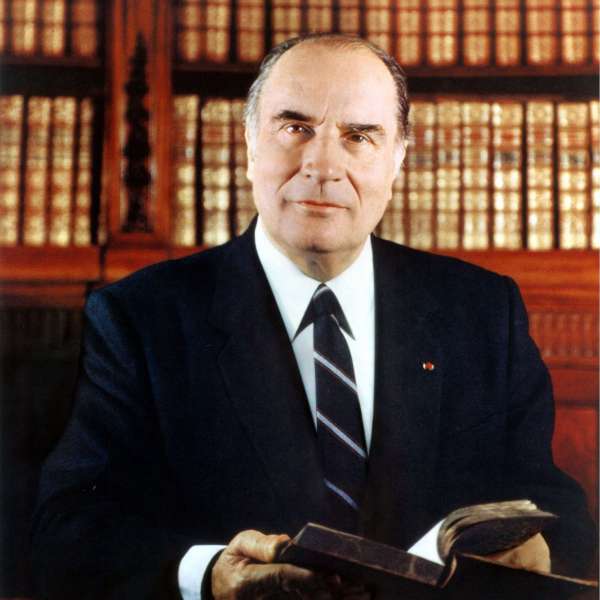20
FRANÇOIS MITTERRAND
FRANCE
François Mitterrand
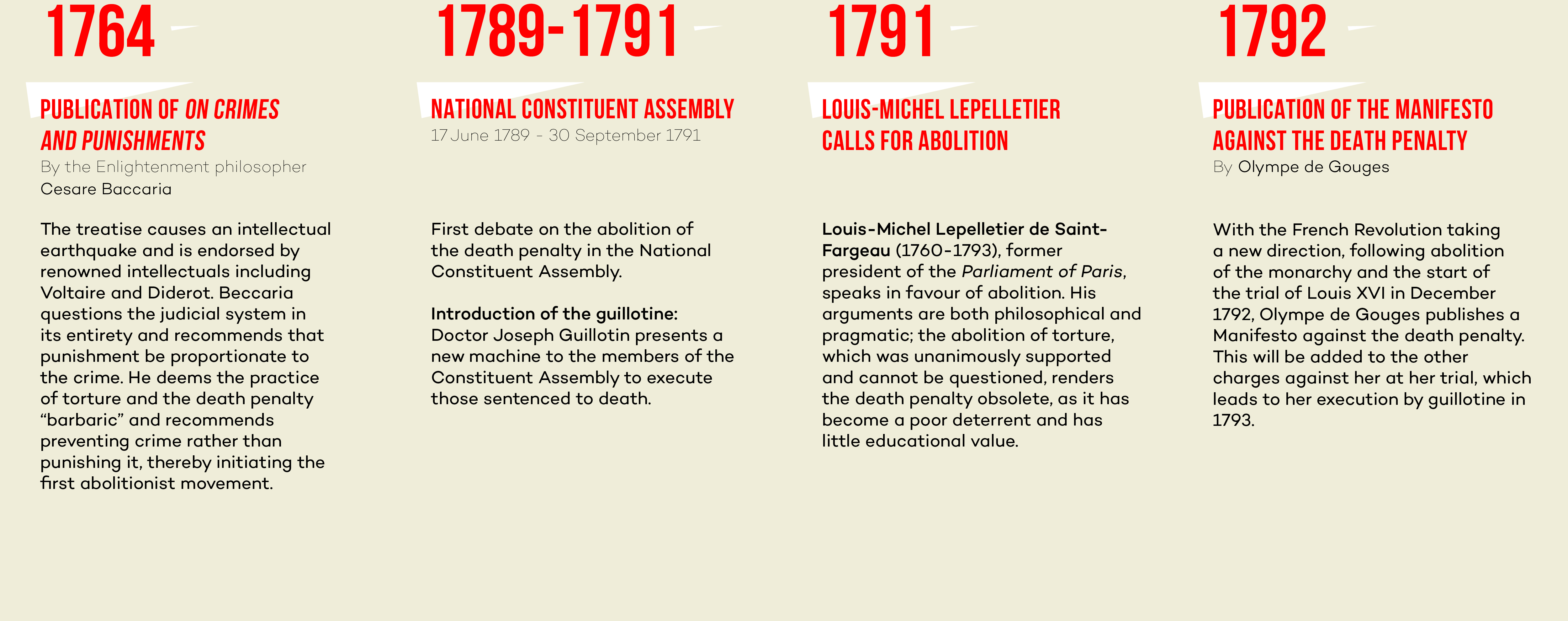
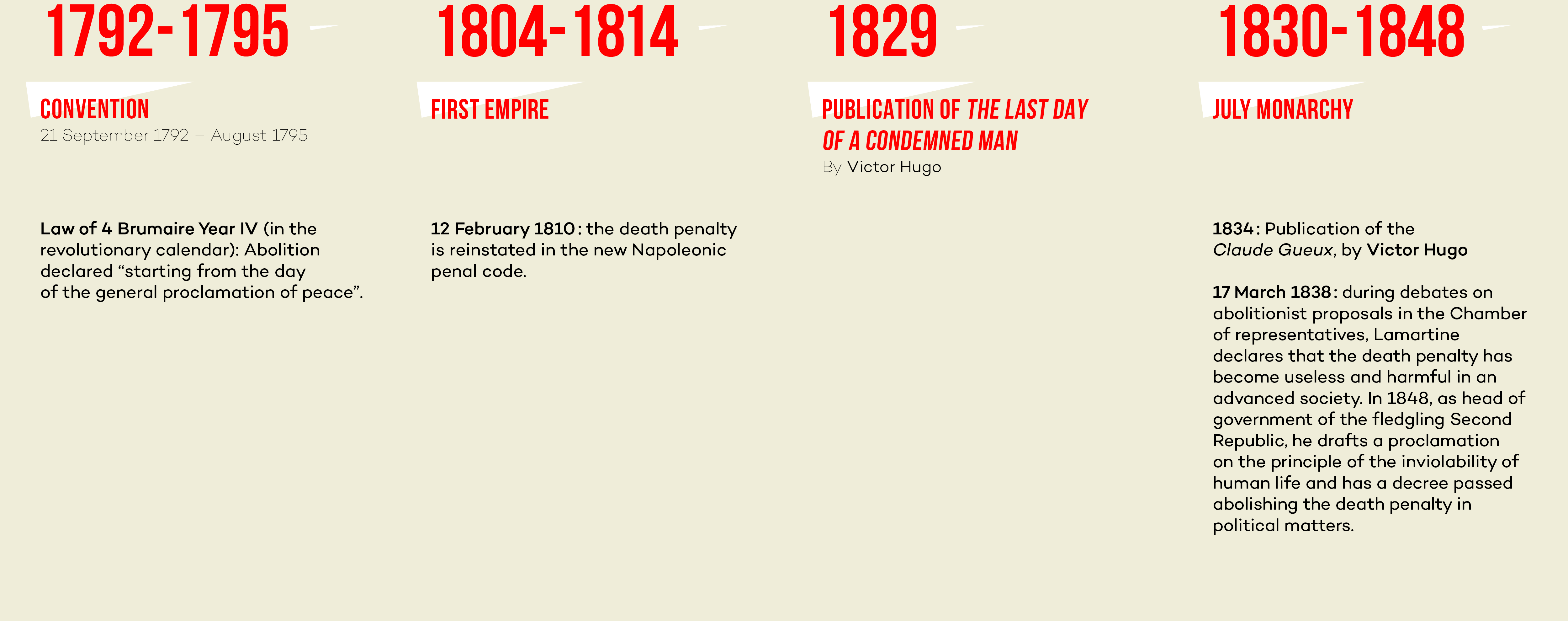
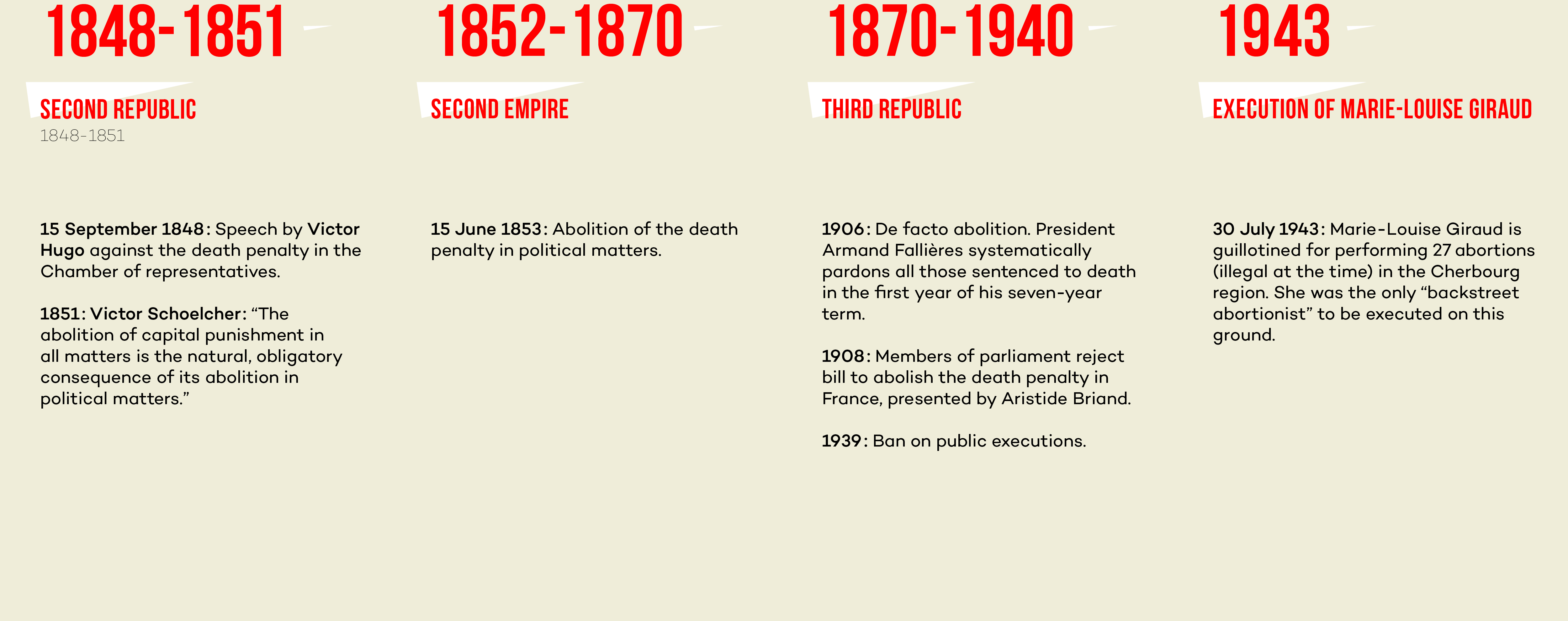
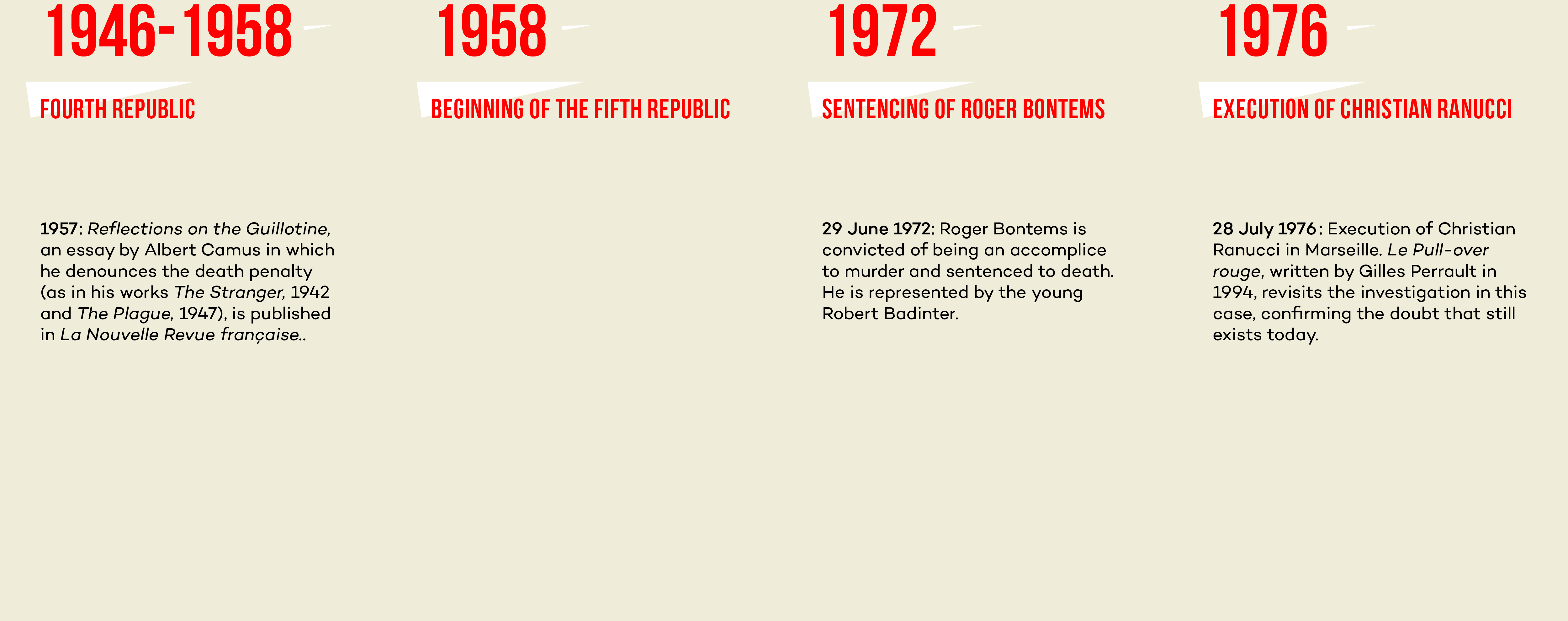
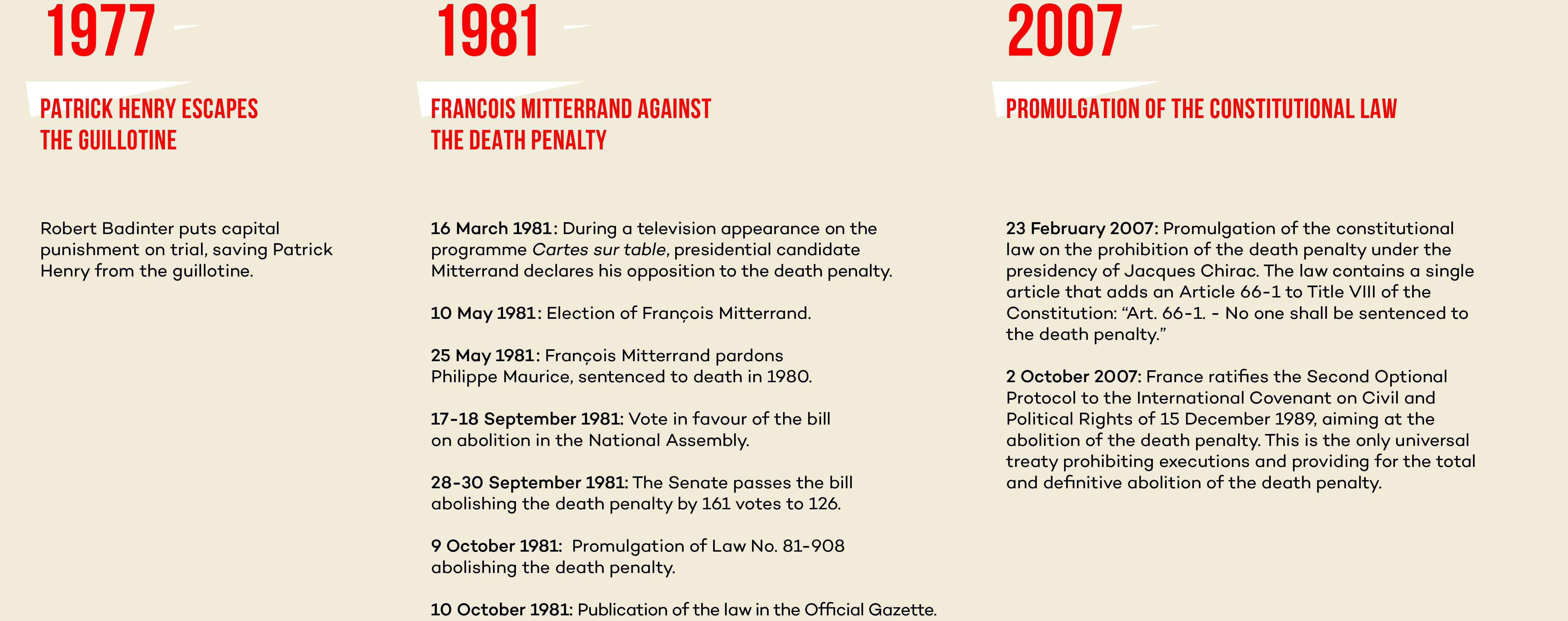
François Mitterrand’s position on capital punishment was not consistent. It underwent a very significant evolution. While under the Guy Mollet government, he was the minister of a retentionist justice system, 30 years later he became the President of the Republic who initiated the Law on abolition. “It is difficult to understand Mitterrand on this point. Mitterrand was not Camus, nor Victor Hugo. During the Algerian war, the Central Administration of the Ministry of Justice no longer had jurisdiction over justice in Algeria, it was the Resident Minister Lacoste. But when it came to deciding on petitions for mercy at the Higher Judicial Council, everyone knows that he argued in favour of execution a number of times. This alone shows that he did not have a firm abolitionist conviction. Mitterrand became an abolitionist the day he became First Secretary of the Socialist Party: the heir to Jean Jaurès and Léon Blum could not be anything other than abolitionist. It was not possible to succeed Jaurès and say that the spiritual heir of Jaurès and Blum was in favour of the death penalty. That was part of the heritage of the great men of the socialist party. He realised and understood that abolition was the only way forward for France, in the construction of Europe, that much is clear.”[1]
During his 500 days at the Ministry of Justice, Mitterrand decided in favour of the guillotine 8 times out of 10, invoking national interest. Two hundred and fifty-three death sentences were handed down against Algerian nationalists. The Algiers Court of Cassation confirmed the death penalty for fifty-five of these men. The petitions for mercy reached the Ministry of Justice where Mitterrand gave his final opinion. The High Judiciary Council never opposed the Keeper of the Seals and Minister of Justice, nor did President René Coty.
The first to be guillotined was Ahmed Zabana. At least one of those executed was innocent: Badèche Ben Mohamedi. In the sinister list of those executed, there is a “Frenchman”: Fernand Iveton who died under the blade on 11 February 1957, a bloody month when 17 people were guillotined over a period of twenty days. Moreover, while in practice the death penalty was no longer carried out against women in metropolitan France, on 25 October 1957, Yamina Oudaï was executed. Mitterrand became a merciless minister of justice.
Badinter believes that Mitterrand changed in the 1960s and became an ardent abolitionist. In 1972, the Socialist Party (PS), the French Communist Party (PCF) and the Radical Movement of the Left (MRG), in their “Joint Programme for Government”, pledged to abolish the death penalty if the Left came to power. Abolition became an election campaign issue. On 16 March 1981, during the televised debate on the political programme Cartes sur table, Mitterrand, opposing Valéry Giscard d’Estaing, explicitly declared that he was against the death penalty: “On the death penalty, as on other subjects, I will not hide my thoughts. And I have no intention of carrying out this campaign in front of the country by pretending to be someone I am not. In the depths of my conscience, which is in line with that of the churches, the Catholic Church and the Reformed Churches, the Jewish religion, all the major international and national humanitarian associations, in my conscience, in the depths of my conscience, I am against the death penalty. I am a candidate for the presidency of the Republic and I am asking for a majority of votes from the French people, and I am not asking for it in the privacy of my mind. I say what I think, where I stand, what I believe in, what my spiritual convictions are, my concern for civilisation: I am not in favour of the death penalty.”[2] At that time, nobody mentioned François Mitterrand’s past in relation to French Algeria and his related political responsibilities on the matter of capital punishment. On 10 May 1981 François Mitterrand was elected. Robert Badinter was appointed Minister of Justice on 23 June. On 9 October 1981, the ultimate punishment was abolished in France and on 10 October the Law abolishing the death penalty was published in the Official Gazette.
Robert Badinter and François Mitterrand are the two names associated with this reform.
Marie Bardiaux-Vaïente
[1] Interview with Robert Badinter, 5 December 2011, by Marie Bardiaux-Vaïente.
[2] Collective, Death penalty – Beyond abolition, Strasbourg, Council of Europe Publishing, 2004.
- livres

The Death Penalty
Authors: R. Hood, S. Kovalev, E. Prokosch, P. Toussaint, P. Hodgkinson, R. Wohlwend,
Publication Date: 1999
This collection of texts by major European abolitionists includes voices from countries which have enjoyed abolition for many years, as well as from those where abolition has been a struggle against public opinion. Contributors from governments, universities & NGOs add their voices to that of the Council of Europe, explaining the achievements & the ground still to be covered in attaining total abolition in Europe. An introduction by a world expert on abolition, Roger Hood & a conclusion by Russia's leading abolitionist Sergey Kovalev makes this volume a moving testament to the battle for abolition of the death penalty, which is already so well advanced in Europe.
This book also contains a detailed explanation of Protocol No. 6 to the European Convention on Human Rights, which deals specifically with abolition of the death penalty, as well as reports on various eastern European countries which have yet to attain complete abolitionist status.


